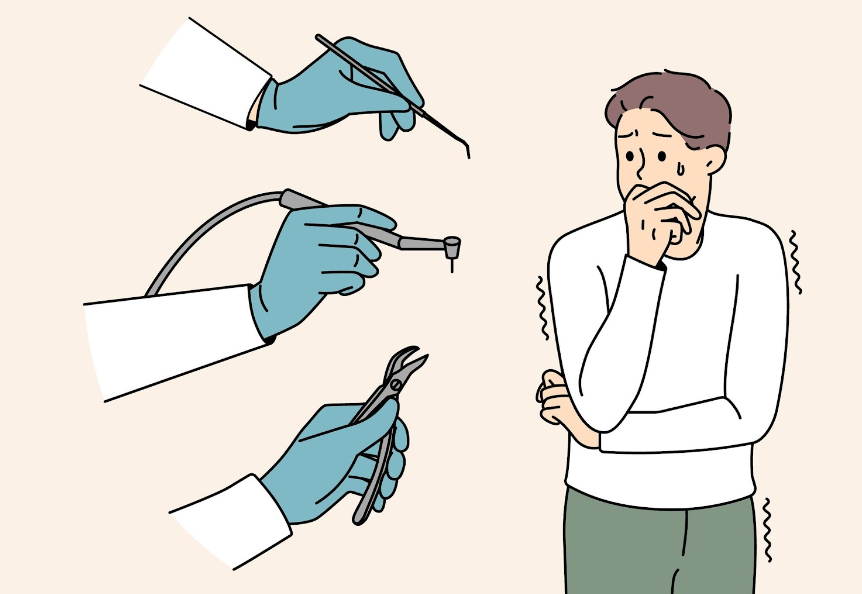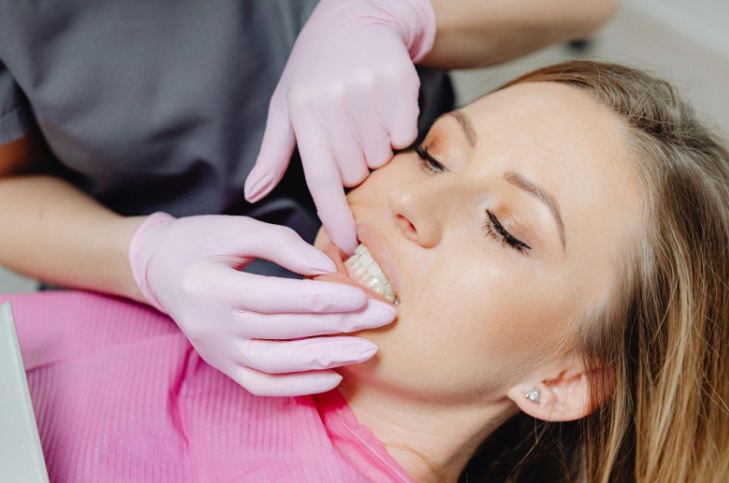Essential Tips to Combat Dental Anxiety
Essential Tips to Combat Dental Anxiety

If you’re someone who shivers at the thought of going to the dentist, you’re not alone. Around 9% to 20% of Americans avoid going to the dentist because of anxiety or fear.
Dental anxiety, or dental phobia, is an irrational fear of dental procedures that can lead to extreme distress and avoidance of the dentist. If left untreated, dental anxiety can have serious consequences for oral health.
People who suffer from dental anxiety can often experience physical symptoms such as a racing heart, sweating, nausea, or even a panic attack. Mental symptoms, like feeling overwhelmed or an inability to cope, are also common. If left unchecked, dental anxiety can lead to neglecting important dental care, which can increase the risk of further oral health problems.
To combat dental anxiety, many dentists offer sedation dentistry services—like nitrous oxide or oral sedation—to help patients relax during treatment.
But even without sedation, there are several simple steps that can help control anxiety and improve dental visits. In this article, we’ll share 20 tips to help you overcome dental anxiety and get the dental care you need.
Communicate Your Fears
Talk to your dentist or dental hygienist about your fears and ask questions. Be specific about what you are afraid of and what procedures are causing you stress. Educating yourself on the treatments can help reduce fear.
Arrive Early
Arrive a few minutes before the appointment to get settled and take a few deep breaths. This will help reduce your stress levels before the appointment.
Bring a Friend or Relative
Consider bringing a supportive friend or relative to the appointment. Having a loved one in the room can help reduce anxiety. Moreover, leaving an appointment with someone can also help turn your mind away from dental treatment and towards positive topics instead.
Listen to Music
Bring a pair of headphones and your favorite tunes. Music can help relax your mind and body, and when the lyrics are positive, they can also help reduce stress and distract you from the procedure. Calming music and nature sounds can also be helpful.
Use a Stress Ball
During the appointment, squeeze a stress ball. This will help release tension and maintain focus on something other than dental treatment.
Visualize Success
Take a few moments before or during the appointment to visualize success. This can help train your mind to replace negative thoughts with a realistic, positive image. Affirmations or mantras, such as “I can do this,” can also help reduce anxiety.
Breathe
Focus on calming breaths and use the technique of taking deep breaths and slowly exhaling during the appointment. This will help reprogram your response to anxiety and help you relax. There are plenty of different styles of breathing, such as diaphragmatic breathing, which can help further reduce distress.
Adopt a Positive Attitude
Approach the dental visit with a positive and proactive attitude. This will help reduce stress and fear and help make the visit go more smoothly.
Find a Supportive Dental Team
Visit dentists that are sensitive to your needs and provide support. Look for dentists who are experienced in helping anxious patients. They may suggest certain techniques to reduce fear and anxiety.
Use a Distraction Technique
Distract your mind with a word game, an audiobook, or even a podcast, and focus on something other than the treatment. Even finding humor in the situation can help reduce stress.
Get Organized
Follow an organized plan of dental care by scheduling appointments regularly and making sure you keep track of dental visits and follow-up visits.
Remember the Benefits
Focus on the long-term benefits of regular dental care—like better health, a brighter smile, and improved self-confidence.
Reward Yourself
Reward yourself for being brave and proactive with dental care. This could be something like a nice dinner, a day at the spa, a movie night, or something else that you enjoy. For example, you could treat yourself after each visit or after completing a long-term plan.
Find a Relaxing Pre-Treatment Ritual
Practice a pre-treatment ritual to help reduce anxiety and focus your attention on something calming before the treatment begins. This could include listening to music, doing deep breathing exercises, or whatever works for you.
Know Your Rights
You have the right to ask questions, clarify the treatment plan, ask for breaks during the treatment, or ask for additional time to discuss your concerns. Don’t be afraid to ask for help.
Take It One Step at a Time
Take treatments one step at a time—don’t jump ahead to worrying about what might happen during the next appointment. Take the time to process and accept the current treatment, and this will help build confidence with dental treatment.
Try Aromatherapy
Try aromatherapy and focus on deep breathing to reduce stress. Essential oils like lavender or chamomile have been used for centuries to calm the body and mind.
Get Rest Beforehand
Get a good night’s sleep the night before and make sure your body is well nourished. Too little sleep and being dehydrated can increase anxiety and worsen your dental visit.
Consider CBT
Lastly, remember that dental anxiety is not uncommon, and it is possible to manage it and get the dental care you need. Consider reaching out to a therapist for help, as cognitive behavioral therapy can also be helpful in managing dental anxiety.
Dental anxiety is a very real, and common experience. If you struggle with anxiety, the good news is that you’re not alone, and there are steps you can take to reduce your fear and get the dental care you need.
Schedule an appointment with
Patriot Family Dentistry in Clarksville, TN, to learn more about how to manage dental anxiety and get the care you need. We’re here to help you feel comfortable and address any questions or concerns you have about your dental care. Call us at
931.645.2469 or
contact us online today!











